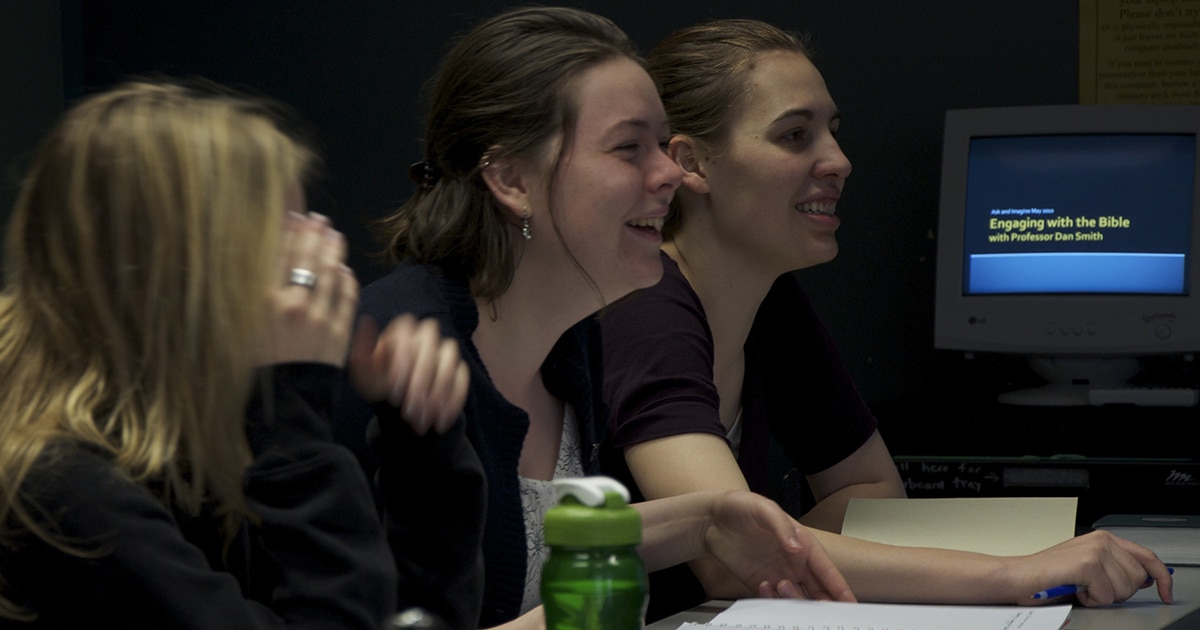Seven years after the 2008 financial crisis and ensuing global recession, the situation facing young workers remains challenging amidst periodic reports of economic recovery.
As precarious jobs with fewer benefits and irregular work hours become ever more prevalent, youth and young adults are increasingly struggling with massive student loan debts, underemployment, reduced social mobility, and unaffordable housing. In the face of a widening income gap between older and younger workers, the current generation may be the first in Canadian history to experience a lower standard of living than their parents.
Intergenerational inequities are one of the 10 issues highlighted in the Anglican Church of Canada’s 2015 federal election resource. Judy Steers, coordinator for youth initiatives at Faith, Worship, and Ministry, said that concern for the difficulties faced by young people reflects the baptismal covenant entered into by all Anglicans.
“In terms of nurturing and supporting the development of young people, I think a church and a society that doesn’t pay attention to its young people really has blinders on in terms of their own future,” Steers said.
Of the myriad issues facing their generation, young Anglicans singled out student loan debt as one of their most pressing concerns.
Steers’ daughter Emily, a first-year student at Mount Allison University involved in Anglican youth programs who is currently studying music and biology, recalled a friend who is still in school and already $65,000 in debt.
“It’s nigh-on-impossible to actually find employment and a house and all of these things while simultaneously living with that gigantic burden over your head,” said Emily, 19.
Despite the socioeconomic challenges, she noted, many remain unsympathetic to the plight faced by young workers.
“We have ridiculously high rates of unemployment, we’re paying more and more for tuition every year with higher student loans, and we’re not getting the payout in terms of job opportunities and salaries once we actually finish university,” Emily said.
“I think the biggest problem—at least, this is my pet peeve with all this—is that … in this ridiculously fractured and incredibly complex global economy, we are kind of being considered whiny and demanding and ignorant for asking for equal opportunity.”
Allie Colp, youth and family coordinator for the diocese of Nova Scotia and Prince Edward Island, noted the disheartening effect for young graduates of struggling to break into their field even as they are increasingly squeezed by the burden of massive student loans and unaffordable housing. Many who do find jobs find themselves working in areas such as retail and customer service, with low pay and irregular hours.
In the face of the higher cost of living, Colp added, many young parents end up working longer hours, which can have negative repercussions on family life.
“If there are two parents in a family, both parents have to work,” said Colp, 25. “If it’s a single parent, they have to work a lot, which kind of cuts down on the meaningful time that they’re able to spend as a family or with their children.”
Official policies often neglect the young for more favoured constituencies, she said.
“I think a lot of government decisions and policy and budget decisions are made based on the middle class or industry or business, which very rarely is a positive choice for young people who don’t have enough money or aren’t in a position to be middle class, and aren’t working in jobs where they stand to benefit from benefits to industry and that sort of thing.”
While public discussion often centres on forgiving student loans, lowering or even eliminating tuition, Colp also highlighted the importance of policies to help skilled trade workers and young entrepreneurs, such as stronger apprenticeship programs and grant opportunities for people who want to start a small business.
She further pressed for the need to address youth unemployment by providing opportunities for unemployed young people to gain access to training based on their skills and the needs of their communities.
View the 2015 federal election resource sheet on intergenerational inequities.
Interested in keeping up-to-date on news, opinion, events and resources from the Anglican Church of Canada? Sign up for our email alerts .

